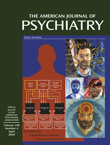Psychological Perspectives on Human Sexuality
Clinical work with people with sexual problems, like therapy with those who arrive complaining of other mental difficulties, often proves to be more complex than research has indicated. The complexity is not so much accounted for by practitioners’ inadequate grasp of the presenting problems as it is by reality. Afflicted men and women in every age group are dynamic, maturing beings. They create private meanings from their diverse life experiences. When they seek help, they have an array of circumstances competing for their attention. Often their presenting problem is the lesser of their limiting patterns. Clinicians look to colleagues who conduct research to provide us with new concepts about a problem, its sources, and effective interventions. We hope that their efforts will take us a little farther in our efforts to help the sexually distressed. Sometimes research does. The rate, however, is low.
The editors of this fine book trust in the utility and power of scientifically derived information about human sexual problems. They have a point when they assert that such information is the best way to train students to be clinicians or researchers. They have given their 39 authors free rein to exhaust their topics in 17 chapters. The average chapter consists of 38 pages with an extensive bibliography. The editors are interested in ideas that do not pathologize unconventional sexual identity development. Most authors are academic psychologists who write from social, psychological, or cultural perspectives. Biology is not heavily emphasized in the book. None of the authors seems to have a striking allegiance to a particular mental health ideology. Many have committed viewpoints.
The book has five sections. The first, titled Background, has superb chapters on research and male and female sexuality and should be required reading for everyone with a professional interest in sexuality. The Core Issues section, besides covering the topics of gender transpositions, varieties of orientation, and erotic fantasies, refreshingly includes a chapter on love. Although victimization has its own section, the topic is frequently addressed elsewhere in the book. The victimizations caused by HIV/AIDS, incest, childhood sexual abuse, varieties of rape, therapist-patient sex, and Internet addiction are discussed, as is treatment of sexual minorities, disabled people, and older adults.
One compelling chapter, “Genital Surgery in Children Below the Age of Consent” in the Issues of Cultural Concern section, is far more polemical than the rest. The authors used the term “mutilation” for the Sudanese practice of female circumcision, the treatment of intersexed babies, and the circumcision of American neonatal boys. Their purpose is to change values. Their grassroots political approach added to my appreciation of those academics whose viewpoints are more prudently uncertain and who take more trouble to be respectful and balanced in their presentations.
It was a pleasure to be in the company of the talented cadre of thinkers assembled by Szuchman and Muscarella, despite the occasional rant, holier-than-thou attitude, or unbalanced emphasis on the lack of data. Many chapters are terrific; none is less than good. Psychological Perspectives on Human Sexuality provides the intellectual background for understanding many important matters. Clinicians like myself will want it on our bookshelves and will recommend it often to students and colleagues.
The book provides much more background for clinicians than guidance for being a therapist. It is relatively silent about two highly relevant current issues: the explosion of progress in our ability to help erectile dysfunction pharmacologically and the frustrating inability to avoid sexual side effects in many psychotropic medications. While clinicians are immersed in intangible forces such as relationship evolution, the consequences of past personal choices, and defenses against knowing and feeling when we attempt to help a person or couple, researchers must deal with measurable matters. This provides their data with their strengths and their limitations. Happily for the reader, most of the authors recognize that in our quest to help others most of us do our best with the tools that we have. A few strident voices shout about our incomplete knowledge; these are the ones, ironically, who demand that things be their way. This is the varied landscape of the profession dealing with human sexuality that Szuchman and Muscarella have ably illuminated for us.
Librarians, invest in this one. Psychological Perspectives on Human Sexuality has too much to offer faculty and trainees to allow the work of these 41 people to drift away into a line item on their curriculum vitae.



